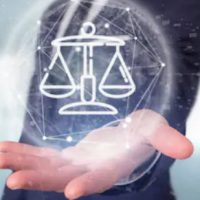Would More Cameras Mean Lower Crime?

Virginia’s Attorney General believes that giving law enforcement officers access to private security cameras, along with additional technology bought with forfeiture funds, would reduce the state’s crime rate.
Many of the technologies in question are already in place — like toll booth cameras, license plate readers, and privately owned security cameras — but could be expanded to better effect.
Police agencies not only need access to the data from these cameras, but they need it in real time to have an edge in fighting crime. It’s common for police to search the neighborhood for cameras that might have captured images or video of a crime that could help an investigation, but that’s after the fact. For them, what’s ideal is to have cameras in place that can be quickly monitored by law enforcement to catch someone in the act.
“Routing camera images in real time from a bank to a police agency, that’s hard to do because those are closed systems that aren’t built for broadcasting signals, they’re built for recording signals kept internally,” a university professor stated.
Taking Private Property for Public Purposes and Legal Consent
An obscure provision in the Fifth Amendment allows governments to seize private property for public use (eminent domain or condemnation) as long as the government pays “just compensation.” The Supreme Court has interpreted this provision very broadly, giving governments the power to seize private property for urban renewal and other such purposes.
Board powers often run afoul of privacy rights. That’s where a Leesburg criminal defense lawyer enters the picture.
Owners don’t have a privacy interest in real property lots. Security cameras are different. This taking involves rights guaranteed in the Fourth Amendment as well. If owners have a privacy interest, as they clearly do in cameras and other recording equipment, seizure power is much more limited.
In the old days, owners readily consented to such seizures. But law enforcement officers have taken a lot of publicity hits in recent years. As a result, many owners are less likely to be cooperative and more likely to be suspicious of a police officer’s true motive.
So, if a police officer asks to use your camera for investigative purposes, and especially if the officer wants a real-time feed of everything the camera sees, you have a right to say no. The same thing applies if an officer wants to search your property for evidence of a crime. Don’t fall for the common “if you don’t consent I’ll get a warrant” line. If the officer had probable cause to get a warrant, s/he wouldn’t ask for voluntary consent.
Civil Forfeiture
In the eyes of law enforcement officers, taking private cameras solves part of the problem. Buying cameras and exercising exclusive control over them is the other major piece of the puzzle.
Under Virginia law, police officers are able to seize almost any property, no matter how big or small, if they believe it was purchased with the proceeds of a crime or used in the commission of a crime.
Critics derisively refer to civil forfeiture as policing for profit. Many people, including conservative luminary Justice Clarence Thomas, have questioned its legality. But, despite opposition, police officers may seize property if they can prove the crime link by a preponderance of the evidence, or more likely than not.
Assume Officer Sarah saw Eddie weaving in traffic. She pulled him over and noticed his eyes were bloodshot. Eddie refused to perform field sobriety tests and refused to provide a chemical sample.
The weaving and physical symptoms prove Eddie had been drinking. This evidence doesn’t prove, beyond a reasonable doubt, that he was intoxicated. However, since it’s more likely than not that Eddie was drunk, Officer Sarah could seize Eddie’s car.
Usually, a Leesburg criminal defense lawyer negotiates buyback agreements in these situations. If Eddie paid a fraction of the car’s probable sales price (which is probably much lower than its fair market value), the police release the vehicle.
Reach Out to a Hard-Hitting Loudoun County Lawyer
There’s a big difference between an arrest and a conviction in criminal law. For a free consultation with an experienced criminal defense attorney in Leesburg, contact Simms Showers, LLP, Attorneys at Law. Convenient payment plans are available.
Source:
govtech.com/em/preparedness/virginia-ag-looking-for-ways-to-use-tech-to-fight-crime
